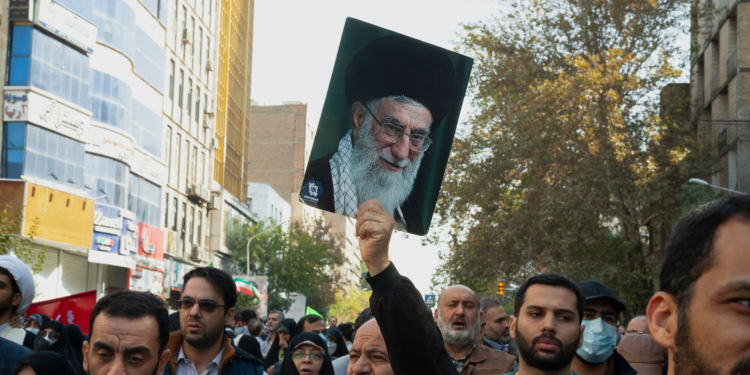Belgium (Brussels Morning Newspaper), In his recent speech regarding the upcoming parliamentary elections, Khamenei asserted that keeping the populace distanced from the political arena is a strategic maneuver by the adversaries of the Islamic Revolution. Now more than ever, Khamenei is reliant on these elections. His appeals to the people to vote are not solely to exhibit a semblance of populism, nor solely to mend the rift between the regime’s two factions, namely the so-called reformists and conservatives. Rather, their primary purpose is to consolidate the factions that currently hold power and have already been “purified” through Khamenei’s filtration.
The simmering state of society, perpetually hinting at the likelihood of a more significant eruption, has spawned internal strife among various regime factions. Nevertheless, Khamenei harbors hopes that these elections might mitigate these top-tier conflicts within the regime. This is in conjunction with his ongoing “purification” efforts to withstand the escalating tides of revolt. Notably, several incumbent parliamentarians have been barred from the forthcoming electoral cycle.
The sharp rise in executions in 2023, marking a 30% increase from the previous year, indicates the regime’s intensifying dread of an approaching revolt. In that same address, Khamenei queried, “Why should reverence for a distinguished commander of Iran and the region, the martyred Soleimani, be called into question?” He criticized a youth for ripping up Soleimani’s picture in front of a vast audience.
Khamenei overtly recognized the involvement of numerous young individuals in resistance units, compelling him to initiate a large-scale venture characterized by widespread bloodshed. These units executed over 400 operations against the regime’s oppressive barriers within a single week, and their numbers and efficacy are on the rise. Khamenei is acutely aware that a small spark can ignite a volcanic upheaval, and the resistance units are steering this toward a significant transformation.
Emerging from medieval religious dogmas, the mullahs’ regime has never managed to establish a stronghold within the young, modern, and educated Iranian society. This has led to an immediate legitimacy crisis and a reliance on repression. War and terrorism have served as facades for unmatched internal suppression. This approach has been, and continues to be, the survival tactic of the Iranian regime. The ongoing conflict in the Middle East is also a component of this strategy.
Khamenei was fully cognizant of the perils of this provocation and understood that Hamas’ assault on Israel could rebound against him. While it’s unclear what alternative options he had, he was forced to choose between inevitable downfall and a slim chance of survival. Though the regime has so far emerged as the victor in this lethal game, the war will undoubtedly impinge upon it. Given its provocation and attack on America’s closest ally, spawning an expanded conflict, it appears highly improbable that the Iranian regime will evade the repercussions, particularly as this conflict transcends the Middle East.
Believing that the regime’s regional adventurism, such as destabilizing international waterways, denotes strength is naive. Stemming from medieval religious dogmas, which bear no real connection to religion, this regime is discordant and incompatible with modern civilization. Resembling feudal-era gangs and thugs who extorted others, this regime uses terrorism and warmongering to bolster its forces’ morale while concurrently extorting others. This is not indicative of strength but rather a sign of their regression. A regime that cannot endure an elderly man singing and dancing in the streets for public joy, opting to arrest him instead, cannot be deemed powerful. It is this illusory strength that underpins the policy of appeasement towards this brutal regime, leading to the current suffering of the people in Gaza and innocent Jews. In a geopolitical context, terrorism and fostering paramilitary groups at the expense of a nation’s impoverishment in a resource-rich country like Iran are not symbols of power but rather stark indicators of barbarity.
Opinions expressed in the op-ed section are solely those of the individual author and do not represent the official stance of our newspaper. We believe in providing a platform for a wide range of voices and perspectives, even those that may challenge or differ from our own. As always, we remain committed to providing our readers with high-quality, fair, and balanced journalism. Thank you for your continued support.Sincerely, The Brussels Morning Team




